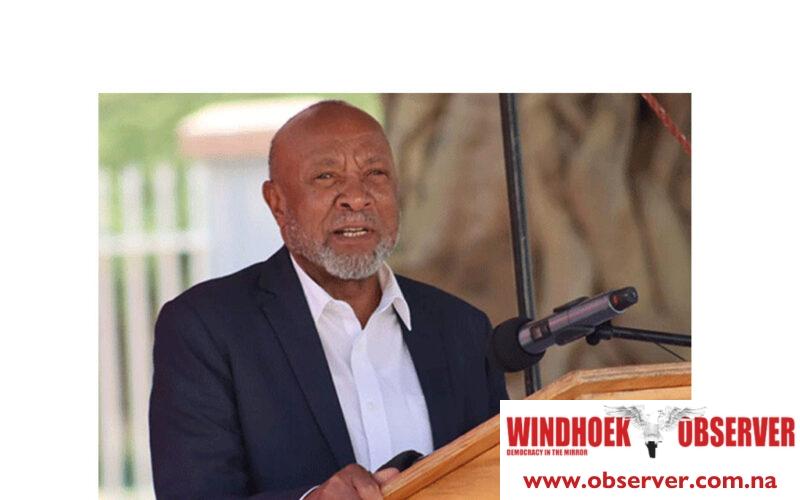Niël Terblanché
The 24th annual meeting of the Council of Traditional Leaders will focus on the significance of preserving Namibia’s cultural heritage, fostering economic growth, and addressing challenges within traditional communities for a united and prosperous country.
Vice President Dr Nangolo Mbumba officially opened the meeting on behalf of President Hage Geingob. The gathering focused on preserving cultural heritage, economic revitalization, and resolving issues related to traditional authority in the country.
In his address, Mbumba stressed the crucial role of traditional leaders in preserving and promoting Namibia’s culture and heritage. He cited the Namibian Constitution, which mandates the Council of Traditional Leaders to advise the President on traditional governance matters.
Mbumba stressed the importance of practising cultural beliefs and traditions in a manner that respects the rights of all citizens, contributing to nation-building and reconciliation.
The Vice President called for unity among Namibians, regardless of their differences, emphasizing the need for collective efforts to drive economic growth and prosperity.
He highlighted the positive trajectory of Namibia’s economy and urged citizens to participate in the nation’s development actively.
The Vice President reiterated the concept of the “Year of Revival,” stressing the need to improve living conditions, enhance resilience to external challenges, and revive the economy.
He called on traditional authorities to support the government’s efforts to address challenges related to traditional leadership, including succession disputes and the recognition of new Traditional Authorities.
Additionally, Mbumba addressed issues related to gender-based violence and the empowerment of women, urging traditional leaders to combat these challenges within their jurisdictions.
He stressed the importance of education for children and called for the elimination of harmful practices like child marriages and child labour.
The Vice President acknowledged the government’s commitment to reducing poverty and inequality, highlighting the Social Protection Policy’s launch and the increase in old-age social grants to alleviate poverty among vulnerable households. He pledged to address concerns about the adequacy of these grants.
Minister of Urban and Rural Development Erastus Uutoni while introducing the Vice President as the keynote speaker at the Council of Traditional Leadres’s meeting stressed the significant role traditional authorities play in addressing societal, economic, and legislative matters.
He noted the challenges arising from the influx of recognition applications for Traditional Authorities, succession disputes, and leadership battles. Uutoni urged traditional leaders to clarify customary laws regarding succession to prevent future disputes.
Uutoni also called for a review of the Traditional Authorities Act to address the proliferation of traditional authorities and leadership disputes. He emphasized that disputes should be resolved through a combination of traditional practices and existing laws, utilizing African methods of dialogue.
Regarding traditional titles, Uutoni emphasized the importance of using traditional titles, even when speaking English, to maintain their cultural integrity. He clarified that the use of “King” and “Queen” is inconsistent with the Namibian Constitution.
Uutoni expressed gratitude to Vice President Dr Nangolo Mbumba for his presence and commended traditional leaders for their commitment to addressing national issues during the 24th Annual Meeting of the Council of Traditional Leaders.




